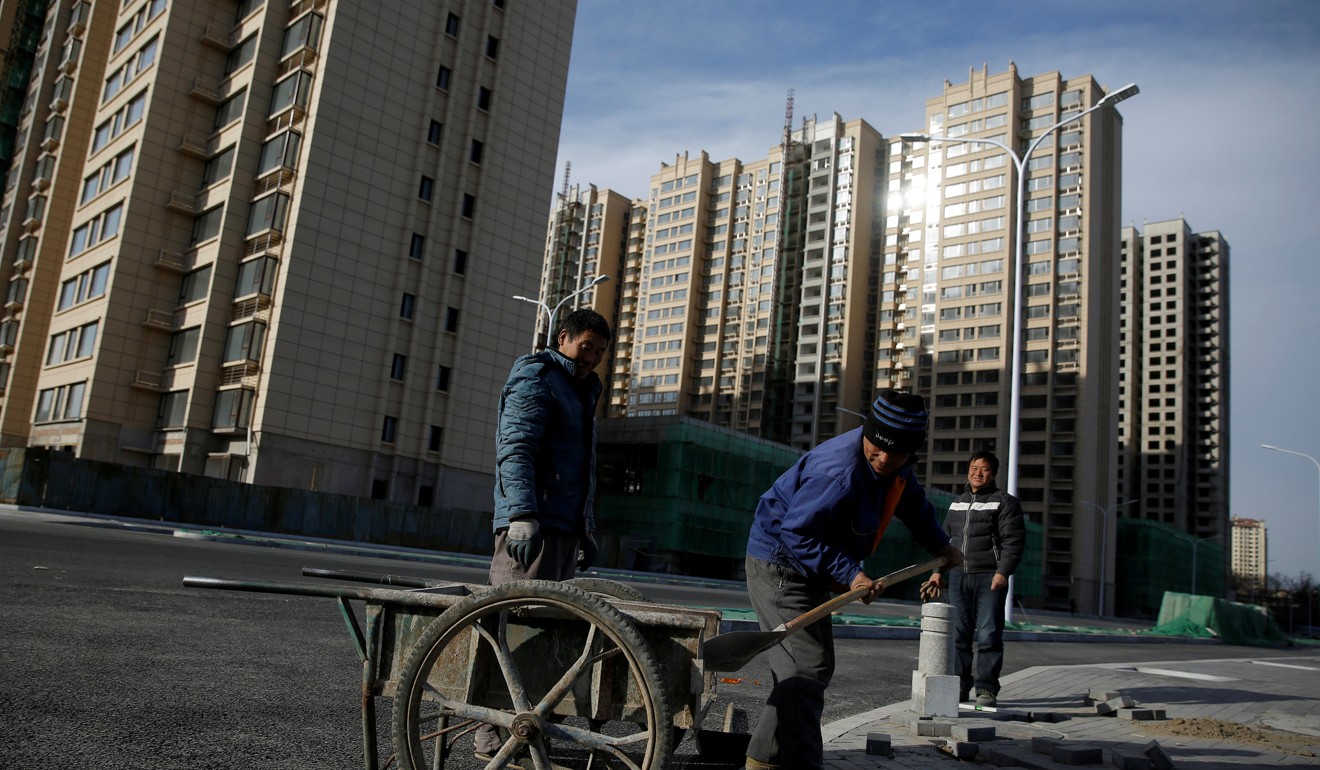
China to pilot real estate investment trusts, moves a step closer to US$1.8 trillion market
Securitisation of rental projects part of push to support residential leasing market
China moved a step closer to standard real estate investment trusts (Reits) on Wednesday, after the government said it would pilot a product to support the residential leasing market, kick starting a market that could potentially be worth US$1.8 trillion.
In a document released by the China Securities Regulatory Commission and the country’s housing ministry, the government encouraged the securitisation of rental projects, which could open an important financing channel for builders and operators of such properties. It also, for the first time, clearly stated that China will pilot the long-awaited reits, which are better than the current privately issued debtlike security products.
“What the market is interested in is, whether after more than 10 years of waiting, the government will fast track a true Reit due to its advocacy of the rental market,” said Huang Changqing, head of the asset securitisation department at TF Securities.
The securitisation of rental projects is part of a much bigger push by the Chinese government to foster an underdeveloped residential leasing market. The Chinese predominantly favour home ownership.
Last October, in a first, the securities regulator approved two rental apartment-backed security products, which added to the industry’s hope that more such products would be on the way. Now, publicly traded reits with global standard practices are on the horizon.
“Securitisation enables residential leasing operators to recoup investments early, and offers incentives for them to focus on operating rental incomes. If the standard Reit comes to the market, investors can bet on the property market without buying a physical home,” said Hu Feng, head of valuations and advisory services at Cushman and Wakefield North China.

There is no lack of asset-backed securities in China’s bond market. These securities provide an essential financing route for developers, who are barred from traditional financing because of government-imposed property restrictions. Since 2017, 10 asset-backed securities worth 50 billion yuan (US$7.9 billion) have been issued with apartments as underlying assets, according to Guotai Junan Securities.
Securitisation enables residential leasing operators to recoup investments early, and offers incentives for them to focus on operating rental incomes
But Guotai Junan also said most of these securities are debt in nature, collaterised by assets, without any true sale of equity in the assets. A few so called quasi-reits sell equity but are private placements, and investors generally hold the products until maturity, without liquidity in secondary market.
Andrew Kam, director of valuations at Savills Shanghai, said: “When we talk about reits in the US or Hong Kong, we talked about the tenants mix, attentive services, enhanced shopping experience and how to improve rent. But in China, they talk about how to expedite issuance. That’s a major difference.”
A Peking University report estimated that if legal and tax barriers were removed, China’s reits market could worth between US$600 billion to US$1.8 trillion given the existing real estate values, surpassing the US Reit market’s size.
Another report from property agency Homelink forecast the number of renters in China would grow from the current 190 million to 230 million by 2025, and that the gross rental market value would grow from 1 trillion yuan to about 3 trillion yuan.

